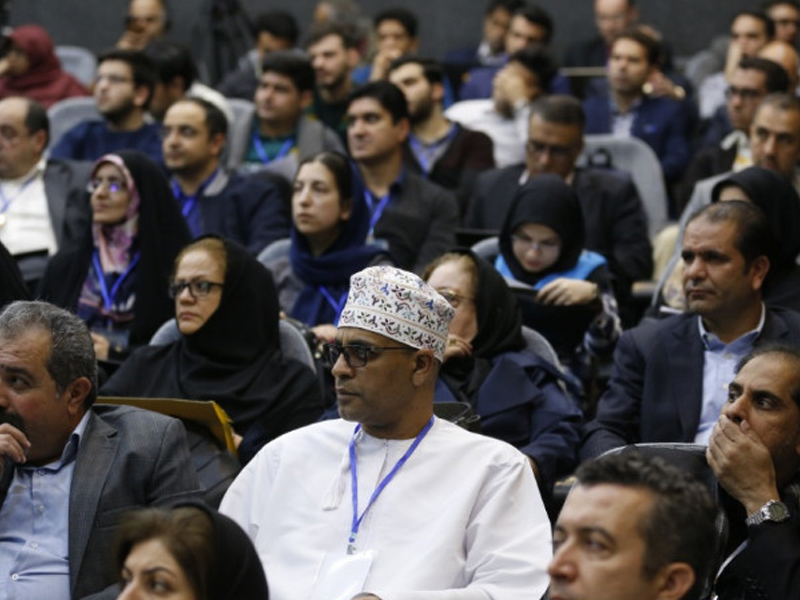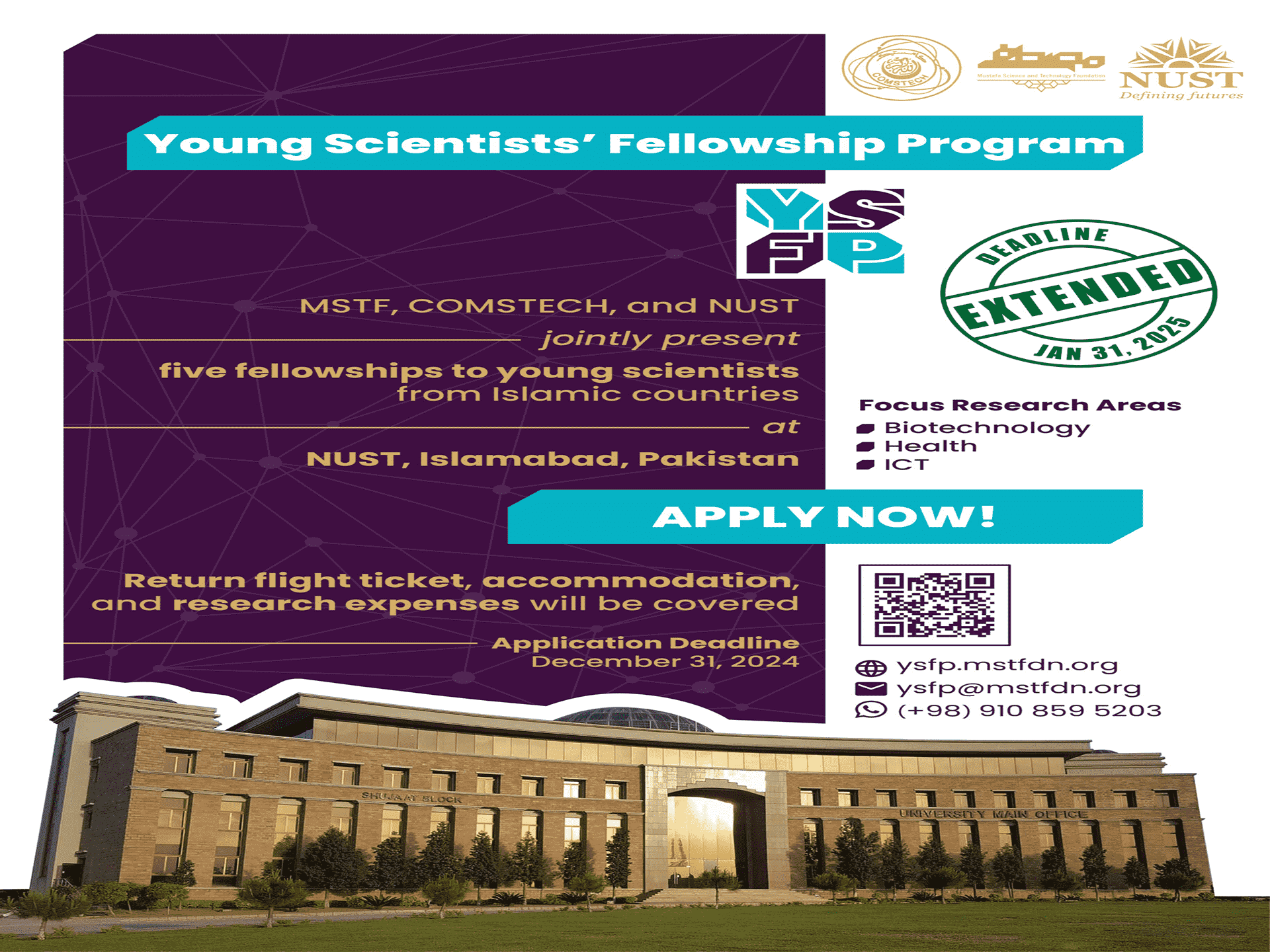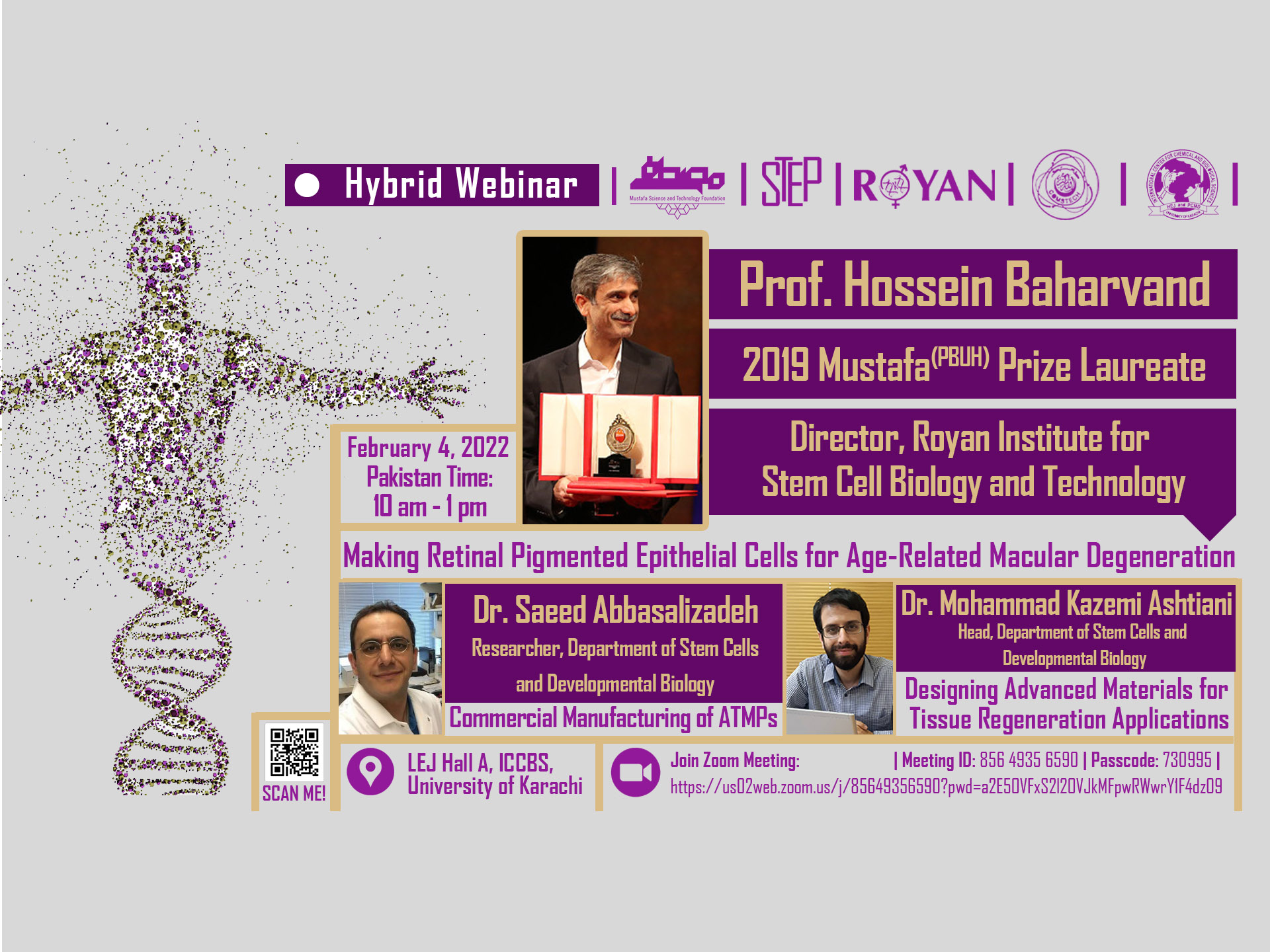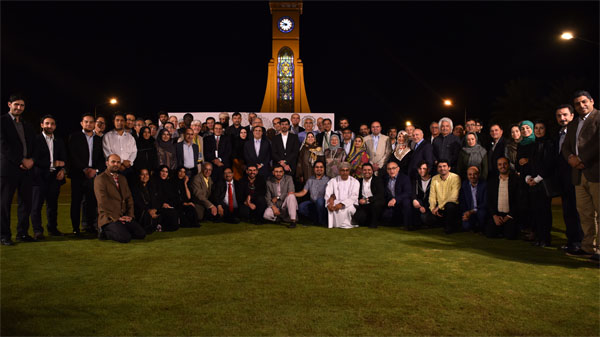TOP STORIES

'OUR EARTH IS SICK!' Renewable Energy Scientists Say
10 Nov. 2019
MSTF Media reports:
The scientists in this panel, by using tangible data gathered from their countries, expressed serious concern for several major issues, such as climate change, the rise in temperature, and other environmental issues that are threatening mother earth.
Jamil Hasan Kazmi, a professor at University of Karachi, Department of Geography presented his speech titled 'Transboundary Environmental Issues in Pakistan: An Opportunity for the Cooperation with the Neighboring Countries'.
According to Kazmi, the climate and topographical features of Pakistan are quite distinctive, hence his focus was on major transboundary issues: locust, environmental diseases, and water pollution. Pakistan also has three distinctive neighbor countries, Iran, Afghanistan, and India, with whom the country shares its environmental issues.
On the issue of locust swarm, he reported that it entered Pakistan from southeast of the country and has created big problems ever since. Locust swarm is an important transboundary issue in Pakistan and Iran because it moves through Iran, India, and Pakistan in different seasons. "The environmental issues are beyond politics, so we need to sit together" and solve them, Kazmi continued.
The eminent problem threatening these countries is Smog (the combination of smoke and fog), for which Pakistan and India keep blaming one another. Transport sector accounts for 43%, industry for 25%, and agriculture for 20% of this issue. The smog is highly problematic and extremely severe in New Delhi and Lahore. Several issues help to exacerbate the problem. For example, the power failure in these countries compels people to use generators which lead to the problem.
Kazmi particularly addressed water pollution, acid rain, and diffusion of diseases. He stated that Hudiara Canal which enters Pakistan from India contains dangerous chemicals. The water in Hudiara Canal is terribly dark and what is worse is that the agriculture sector uses this contaminated water to grow vegetables.
On the issue of acid rain, he maintained that in 1991 Saddam caused a fire in Kuwait which has negatively affected the Middle East ever since and has caused acid rain.
Kazmi further talked about Malaria which has entered Pakistan because of climate change and immigration and has gradually increased throughout the years.
Sofiane Amara, a scholar from University of Abou Bekr Belkaïd, discussed the awareness towards energy transition. Amara began his speech by a simple, key saying: "Our earth is sick; our mother is sick." According to Amara, global warming which became a scientific fact in 2000 started in 1880. Between the years 1880 and 2000, global temperature increased by 0.7 degrees. After 2000, the global temperature increased by 0.5 degrees. This rise in temperature is a major problem that we have faced, Amara said.
Amara further discussed the options available to solve this problem. The first option is to reduce CO2 existing in the atmosphere and the second is to reduce energy consumption.
One way to reduce CO2 is absorbing existing emissions using long-term storage. This method which has been used in Canada and Europe as well as in In Salah, Otway, and Ordos, has taken 2.7 billion dollars to be operated from 2004 to 2011, a big money just for seven years. A hypothetical plan is to plant trees all over Algeria to reduce co2. As Amara stated, one ton of wood can fix one ton of CO2. Therefore, bringing a lot of trees from Europe seems to solve the problem, but it is not practical.
The second solution is using renewable energy. Geothermal or solar energy costs a huge amount of money. A not so well-known approach is the use of Qanat canal or Fouggara; it is an irrigation system which for the first time was used in Iran. It consists of different wells which are connected underground for irrigation. Nowadays, most of them are destroyed due to the lowering of underground water.
Amara maintained that Middle East has a big potential for solar energy. But the expenses are high and also the question of meeting the energy requirements for a large and growing population while preserving our environment exists.
We can start by energy economy, for example using economic lamps to reduce the energy consumption, Amara added.
In the end, Amara presented several policy implications and recommendations and short-term and long-term solutions. According to him, it is important to keep our kids aware in the middle school by modifying the curricula to inform them about global warming, climate change, and renewable energies.
Majid Abbaspour also presented the results of the research done in recent years on transboundary environmental challenges in Iran and Islamic world and the consequences of climate change. Concentration of atmospheric CO2 has considerably increased from 1958 to 2015, 2020-2029 is terrible, and 2029 forecast is much worse according to him. The evidence for rapid climate includes global temperature rise, glacial retreating, ice sheets shrinkage, decreased snow cover, sea level rise, and ocean acidification.
He went on to list water scarcity, the rise of temperature, erosion, extreme weather, unsustainable land use, and changes in wind direction, among the consequences faced in Iran on account of climate change. Iran ranks under the category of vulnerable countries, he added. The cases of sand and dust storms which are common in Iran, Afghanistan, Iraq, and Saudi Arabia are resulted by climate change.
Demand for water is also increasing, making water stress a critical issue in Islamic countries. This issue is predicted to exacerbate in many water-scarce areas of the world. Comparing the statistics related to the years 1995 and 2025, fresh water stress is bound to worsen in Iran.
In order to deal with environmental problems, there are several projects under study, one of which is Oman Sea water transfer plan. Abbaspour maintained that creating a network of cooperation on scientific and technological exchange among the scientists and related institutes is of great importance.
In this regard, STEP can help to mobilize cooperation among scientists on matters of water resources management, water desalination techniques, development on the increased use of renewable energy, the use of new technologies to adopt more environmental friendly adaptation and mitigation techniques in all sectors.
We must rely more on technologies and increase the cities' resiliency against natural disasters, he added. For example, IOT (Internet of Thing) is a new technology we can rely on.
In conclusion, he recommended establishing a coordination office at STEP secretarial with focus on climate change, adaptation and mitigation, sand and dust storm management, city resiliency, water desalination, technology management and transfer, etc.
Conducting cooperative and joint activities together with other institutions at STEP on technology exhibitions, training programs, technology transfer activities, developing a regional vision for technology development and commercialization, establishment of a web-based inter and cross connecting facility, (web-DBS) are among other solutions he provided.
Mohammad Soltanieh focused on financial issues and posed the question that where shall the money be provided. The fact that we are saving our lives, he said, must be enough for us to take action. He further added that it is not the costs that matter; it is the benefits that we get. This is a matter of limited resources, not a matter of economy alone. It is a multidisciplinary matter, in other words, and governments must be pushed to take action.







